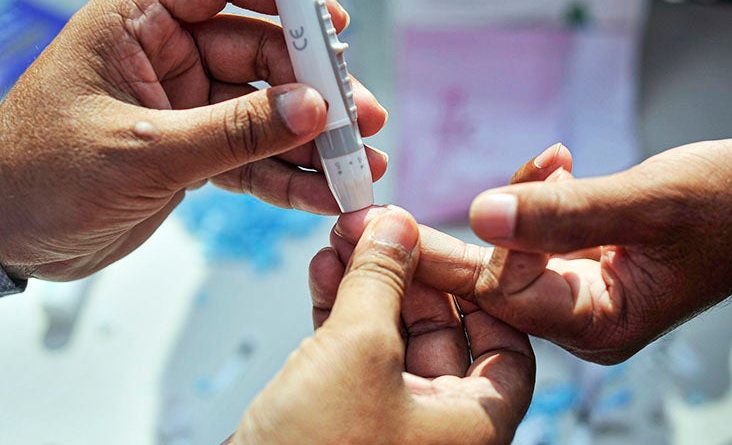Ozempic in a pill: Could higher doses improve blood sugar, weight loss?

- Blood sugar control and weight loss can be more effectively achieved with higher doses of oral semaglutide, according to a new study.
- While oral semaglutide is approved for controlling type 2 diabetes, it also shows promise as a weight-loss drug for people with obesity.
- The study confirms that once-daily oral doses of semaglutide may be capable of replacing current injectable semaglutide medications.
Drugs containing semaglutide, such as the injectable Ozempic, are a type of medication used for treating type 2 diabetes. They promote the release of insulin by activating receptors for the glucagon-like peptide-1, or GLP-1. In addition, semaglutide reduces appetite, helping people maintain a healthy weight, which is important for managing type 2 diabetes.
A new study of semaglutide finds its effect on blood sugar and appetite is dose-dependent, with higher doses proving more effective than current prescription levels.
Semaglutide medications are approved for the treatment of type 2 diabetes as an accompaniment to diet and exercise, typically as once-weekly injections or once-daily oral drugs.
For many people with type 2 diabetes and their physicians, oral medications are preferred due to their greater convenience, including not having to get a shot.
Currently, oral semaglutide is prescribed in 3 mg, 7 mg, and 14 mg formulations. The new study tests the effectiveness of 14 mg doses against 25 mg and 50 mg formulations.
The study describes a randomized, double-blind, phase 3 trial that was conducted at 177 sites in 14 countries with 1,606 adult participants. All individuals had type 2 diabetes and a body mass index (BMI) of 25 or greater.
Divided randomly into three groups, participants took oral semaglutide once daily for 68 weeks. One group took a 14 mg formulation, another group took 25 mg, and the third group took 50 mg.
The researchers measured individuals’ HbA1C — which reflects average blood sugar levels over the past three months — at the outset of the study and again at 52 weeks. The American Diabetes Association considers an HbA1C level of less than 6.5% to be non-diabetic.
The 50 mg and 25 mg doses proved to be more effective at reducing HbA1C than the 14 mg group.
In addition, those in the higher-dose groups lost more weight. In the 50 mg group, the average weight loss was 17.5 pounds. For the 25 mg group, it was 14.8 pounds, and the 14 mg group lost an average of 10 pounds.
The study was funded by Novo Nordisk — the manufacturer of Ozempic, Wegovy, and Rybelsus — and it is published in The Lancet.
Semaglutide side effects
Dr. Jay Shubrook, professor of the Primary Care Department at Touro University, California, noted that all GLP-1 drugs, as pharmacological agents, can have side effects.
These “are often dose-dependent and can be more noticeable during dose changes,” said Dr. Shubrook.
In any event, common semaglutide side effects “include a loss of appetite (more than desired), nausea, and less commonly, vomiting or diarrhea. These side effects are transient in most people,” he said.
He noted that coaching patients on slow and mindful eating — and avoiding overeating — can reduce semaglutide’s side effects.
What is the best dosage?
Dr. Shubrook expressed enthusiasm regarding the study and other advances in GLP-1 drugs.
“This is an exciting time in the management of obesity-related chronic disease — including type 2 diabetes,” said Dr. Shubrook.
The study also makes clear that semaglutide’s benefits are dose-dependent, something that is still being investigated for newer oral drugs. “We’re still trying to figure out at least what’s the best [dosage],” said Dr. Mir Ali, medical director at MemorialCare Surgical Weight Loss Center at Orange Coast Medical Center, California.
“With the data available today, higher-dose oral semaglutide could be used in people with type 2 diabetes who have not achieved their glucose goals with the lower dose,” said Dr. Shubrook. It would also “assist in further weight loss or reduction in other medications to reduce polypharmacy.”
Using semaglutide for weight loss
Oral semaglutide is only currently approved for treating type 2 diabetes, with only two GLP-1-related injectables — liraglutide and Wegovy — approved for treating obesity.
“People with obesity [experience] many conditions — including increased risk of cardiovascular disease, stroke, arrhythmias, sleep apnea, and even cancers. So, helping these people is more than treating obesity and diabetes,” said Dr. Shubrook.
“The GLP-1 family of medications (and the new dual/tri agonists) are highly effective as a treatment for obesity — and therefore should be used as such, regardless of whether patients have comorbid type 2 diabetes,” said Dr. Andrew H. Hogan, professor and principle investigator with the Metabolic Immunology Research Group at Maynooth University, Ireland.
Dr. Ali said he feels these medications should be used only for people who are not looking to lose just a few pounds.
“That’s not the appropriate use of this drug,” he cautioned, “but for people who have serious conditions who are in the obese range, I think it’s reasonable to use these kinds of medications.”
“So far, they’ve been shown to be more effective than other medications we have. So, until something better comes along, that seems to be the best we have medication-wise,” he said.
Other research has found that while semaglutide does help people lose weight, they often do not maintain that weight loss after treatment ends.
“Do we treat obesity like any other chronic medical condition, like diabetes, where the patients are on medications for long-term periods? So, then the question becomes, is it safe to use for long term weight-control? That remains to be seen,” asked Dr. Ali.
For now, Dr. Ali said, “For people who meet the criteria for surgery, surgery is still the best option. It has the best long-term results.”
Source: Read Full Article
